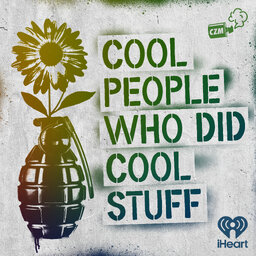Part Two: ACT UP: How Angry, Dying Queers Invented Modern Activism
Margaret finishes talking with Francesca Fiorentini about the AIDS activists who changed the world.
In 1 playlist(s)
Cool People Who Did Cool Stuff
As long as there’s been oppression, there’ve been people fighting it. This weekly podcast dives into…Social links
Follow podcast
Recent clips

Part Two: Ben Passmore on Black History
36:20

Part One: Ben Passmore on Black History
35:44

Everyone vs ICE: On the Ground In Minnesota, Pt. 2
1:02:17
 Cool People Who Did Cool Stuff
Cool People Who Did Cool Stuff